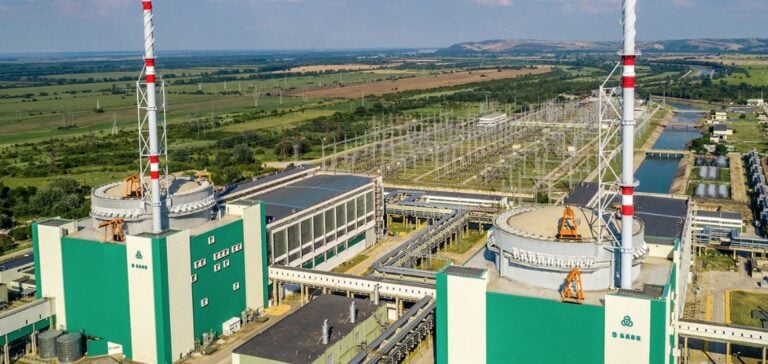Bulgaria has taken a major strategic decision by starting to use nuclear fuel manufactured by US giant Westinghouse at its Kozlodoui power plant. This initiative marks a significant turning point for this Balkan country, aimed at reducing its dependence on Russian energy. The Soviet-designed Kozlodoui site is crucial for Bulgaria, supplying more than a third of the country’s electricity needs.
The process of loading 43 Westinghouse fuel assemblies into the plant’s oldest reactor, dating back to 1987, was successfully completed. This transition to a new fuel supplier is an essential step in Bulgaria’s energy diversification strategy. Moreover, in a bid to achieve nuclear emancipation from Russia, Sofia announced in 2023 an agreement to build two American nuclear reactors.
A long-term project
The complete transition to non-Russian fuels is scheduled to take four years. From 2025, the plant’s second reactor will be fuelled by French company Framatome, under an agreement signed at the end of 2022. This dual source of supply, Westinghouse and Framatome, is a key element in Bulgaria’s energy policy, aimed at ensuring the security and stability of its supplies.
Energy diversification is not limited to nuclear power. Despite its history of almost total dependence on Moscow for its energy needs prior to the Russian invasion of Ukraine, Bulgaria has reoriented its strategy to include a variety of partners. The country no longer imports Russian gas for its own consumption, although it remains a transit hub via the Turkstream pipeline.
Futuristic Expansions
As part of its long-term strategy, Bulgaria is planning to build two new nuclear reactors at the Kozlodoui site, the first to be of American design. These reactors should be operational by the 2030s, further boosting the country’s energy capacity while further diversifying its sources of supply.
The Bulgarian initiative is part of a broader trend in Central and Eastern Europe. The Czech Republic, Slovakia and Hungary have also signed nuclear fuel supply agreements with Westinghouse and Framatome, underlining a regional determination to reduce dependence on Russia.
Implications and prospects
Bulgaria’s energy transition represents a significant development in the European energy landscape. By diversifying its sources of supply, Bulgaria not only strengthens its energy security, but also contributes to the region’s energy stability. This initiative could serve as a model for other countries seeking to reduce their energy dependence on monopolistic suppliers.
The construction of new reactors and the transition to diversified suppliers are positioning Bulgaria as a key player in the European energy sector. Sofia’s strategic choices could also influence the energy policies of its neighbors, encouraging greater collaboration and investment in the sector.
Bulgaria’s commitment to energy diversification and security is a strong signal for the European energy market. By freeing itself from dependence on Russia, Bulgaria is positioning itself to play a more independent and influential role on the international energy scene.






















